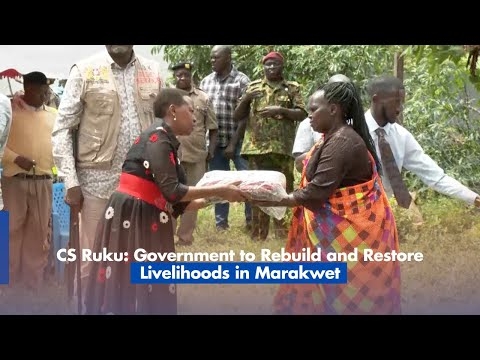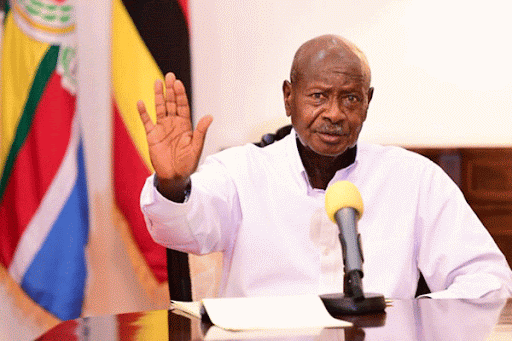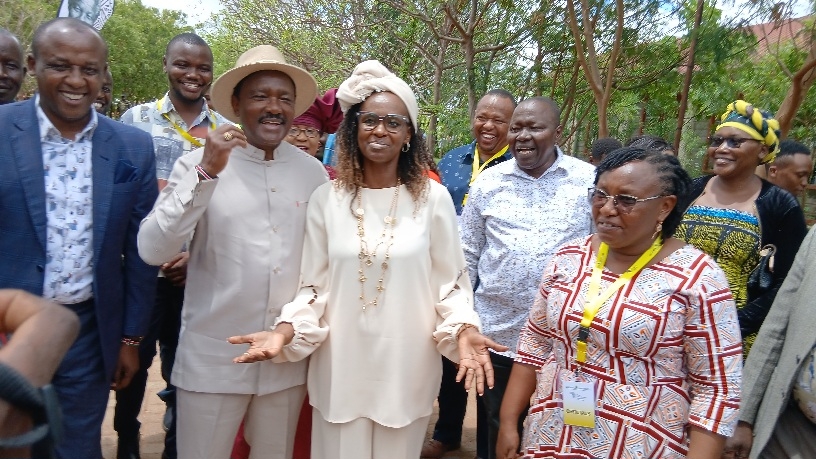The first case of HIV/Aids was reported in Kenya in 1984.
Major advances in medical science and sustained efforts to combat the virus have seen drastic decline in its spread. HIV/Aids is no longer the death sentence it was for long considered to be.
With consistent use of medicine and adjustments in lifestyle, most infected persons live normal lives.
But the stigma attached to the virus persists. While some Kenyans share positive stories some have suffered rejection and isolation.
At Kudho village in Kibos, Kisumu county, we meet Maureen (not real name), now aged 22.
She was born at the start of the new millennium when the when HIV was sweeping communities.
Maureen's parents were HIV positive and the mother transmitted the virus to her during breastfeeding.
"I am always in good shape and beautiful than how you have found me today. I am this way just because of stress and the had economic times of this regime of President William Ruto," she said.
"A few months ago, young men could not stop asking me for a relationship just because of how beautiful I looked despite being on ARVs for 22 years now."
Maureen has suffered many challenges in coping with the disease that requires daily anti-retroviral therapy.
She was left a total orphan at the tender age of three after her parents succumbed to the virus.
Afterwards, her guardian could not stomach the fact that she was living with a HIV positive person under her roof.
The caregiver would lash her and occasionally throw away her medication.
Opportunistic diseases became part of her life, until she was rescued by a well-wisher who raised her up in a children's home.
She was in Bondo town, Siaya, in 2020 where she met a man who wanted a relationship.
"We started dating and I always insisted to the man that I was HIV positive, thus the need to protect ourselves with a condom," Maureen said.
They relocated to the man's home in Bungoma, and he maintained giving her bus fare to get medication at a hospital in Siaya.
A year later, they had a child.
"The child is now two years old and is negative since my viral load is undetectable and I adhered to the doctor's instructions on administering verapine to the baby for the period that I breastfed," she said.
The sad part about her story is that her mother-in-law discovered about her HIV positive status and corrupted her son's mind into rejecting, humiliating and separating from her.
She now lives as a single mother. And due to the rejection and the accompanying depression, lack of a job to feed herself and the baby, and the ARV drugs on an empty stomach, Maureen has lost weight.
She wishes that society would accommodate Millennials and Generation Zs who were born HIV positive.
"It is not our fault to have been born with HIV. The good thing is that the majority of us have suppressed viral loads and cannot transmit the virus to our lovers and the children we give birth to are HIV negative, but men keep on taking flight the moment they discover our status,” Maureen said.
In contrast, Jesca (not real name) lives in Ugunja, Siaya county, with her family.
Th 27-year-old woman acquired the virus from her university boyfriend in 2018.
She sought medical intervention and was enrolled for ART immediately.
Whereas she had given up on relationships, a man asked for her hand in marriage in 2020 and she agreed.
Jesca says that the man got scared when she finally opened up about her HIV status but after days of soul searching, he accepted never to let her go.
"Surprisingly, he was not scared and showered me with praises. It turned out that some of his younger siblings were also living with HIV and he told me that he is proud of us for bravely fighting the virus," Jesca recounted.
"My hubby loved me more and hoped that I would be the best person, as his wife, to relate well and care for his parents and younger siblings," Jesca said.
Jesca whose viral load is suppressed says that she has adhered to treatment and her husband remains negative. Her in-laws, however, do not know about her status.
They now have a two-year-old HIV negative baby and live happily as a discordant couple.
"We were giving the baby verapine drug during breastfeeding. I stopped breastfeeding him early at 14 months because there was shortage of the drugs at that time," she said.
Jesca's husband says that they are already planning to have baby number two.
"I have resolved to love my wife more and make our family beautiful because I know the virus has been defeated. My wife, son and I are very healthy and cannot stop waiting for baby number two," said the 29-year-old man.
He urged other people not to be scared of becoming a sero-discordant couple since achieving viral load suppression means not being able to transmit the virus.
“Mothers who are HIV positive are put on highly active antiretroviral therapy (HAART) to reduce viral load, hence reducing the chance of the exposed baby getting infected. The baby on the other hand is issued with HEI prophylaxis - AZT and NVP (treatment regimens) for the period under exposure,” said Justus Olando, a HIV programme officer in the county government of Kisumu.
Achieving viral suppression reduces chances of HIV transmission to negative partners, improves quality and prolongs life, Olando said.
There has been a decline in the mother-to-child HIV transmission rate with the HIV Estimates, 2023 placing the national average at 8.6 percent.
The national rates stood at 8.9 per cent in 2021, 9.7 per cent in 2020, 10.8 per cent in 2019 and 21 per cent in 2010.
Mandera county has the highest MTC transmission of 38.8 per cent, Wajir (29.6), Samburu (25.7) and Narok (21.1).
Siaya county currently has the lowest mother-to-child HIV transmission rate, being the only county will a less than five per cent rate.
County’s director of health Kennedy Orwenjo attributed the decline to proper leadership and coordination, and reliance on the Community Health Promoters to pass key health messages at household level.
“We also use mentor-mothers to educate their peers and incorporate their ideas in psycho-social interaction,” he said.
To lower the MTC HIV transmission even further, Dr Orwenjo noted that the county government of Siaya is keen on continuous medical education to healthcare providers, strengthening community engagement to foster ownership and collaboration with the national government to improve the availability of drugs and test kits.
"In line with this years World AIDs day theme of 'Let Communities Lead', Siaya is also relying on Community Health Promoters to map out pregnant mothers to promptly attend antenatal clinics (ANC) to increase uptake of HIV testing and linkage of positive clients,” Dr Orwenjo said.
Dr Orwenjo notes that there exists so many serodiscordant couples in Siaya but majority are living positively and supportive of one another.
He is urges other serodiscordant couples to “trust science and embrace expert advice.
“I continue asking people on care to continue practicing adherence and encourage each other. For the general public, let us be supportive to people living with HIV and remember that prevention is better than cure,” Dr Orwenjo said.

















